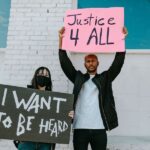
The University of Georgia School of Law’s First Amendment Clinic has moved for summary judgment on behalf of Avid Bookshop LLC, challenging the constitutionality of the Gwinnett County Jail’s mail policy that bars physical bookstores from shipping books to Jail residents.
Avid, an independent bookseller located in Athens, Georgia, has a protected First Amendment right to communicate with Jail residents by providing them with books. Books mailed by Avid to the Jail were repeatedly rejected on the ground that Avid was not an “authorized retailer.” Jail officials admitted there was no process or criteria for becoming an “authorized retailer.” And according to Gwinnett County Sheriff Keybo Taylor, only Amazon, Barnes & Noble, and Books A Million had ever been designated as “authorized,” although this was not written down anywhere and documents produced by the Jail show that this interpretation of the policy was inconsistently enforced.
After Avid sued, arguing that the Jail’s “authorized retailer” policy violated its First Amendment rights, Sheriff Taylor revised the Jail’s policy to be even more restrictive. Presently Amazon.com and Barnes & Noble warehouses are the only retailers allowed to mail books to the Jail. The revised policy explicitly states that books mailed by retail bookstores will be rejected. This is supposedly to prevent the smuggling of contraband inside of books that have been accessible to members of the public in a physical bookstore. But the Jail accepts religious books that have been accessible to the public if they are mailed by religious organizations, giving rise to a content-based discrimination claim. Additionally, Jail officials could identify no instances of contraband being found inside of any book mailed by a physical bookstore. Further illustrating that the Jail’s revised policy is an exaggerated response to the risk of contraband, the federal Bureau of Prisons, as well as the three largest state departments of corrections (California, Florida and Texas) and the Georgia Department of Corrections all accept books mailed by bookstores.
In November 2024, the United States District Court for the Northern District of Georgia denied the Gwinnett County defendants’ motion to dismiss Avid’s First Amendment claim. On December 3, 2025, Avid and the Gwinnett County defendants each moved for summary judgment. Oral argument on the fully briefed motions is scheduled for April 9, 2026.
To date, this matter has been advanced by First Amendment Clinic students Frank Easterlin, Carly Judenberg, Eric Pruitt, Adoris Gibbs, Alex Klein, Madi Blair, Alex Cross, Patrick Johnson, Ellie Wilson-Wade, and Clinic fellows Christina Lee, Urub Khawaja, Allyson Veile and Ashley Fox, all working under the supervision of Clinic director Clare R. Norins.
The case is co-counseled with civil rights attorney Zack Greenemyre.
Related news reports: Law360, Georgia Public Broadcasting, Atlanta News First, Atlanta Journal-Constitution, Fox 5 Atlanta

The Issue
Free Speech
The First Amendment protects the right of private individuals to engage in speech and expression without being censored or punished by the government because of their viewpoint. While the government may constitutionally regulate the time, place, and manner of private speech in public forums it must do so in a viewpoint-neutral manner and, depending on…
Explore Issue